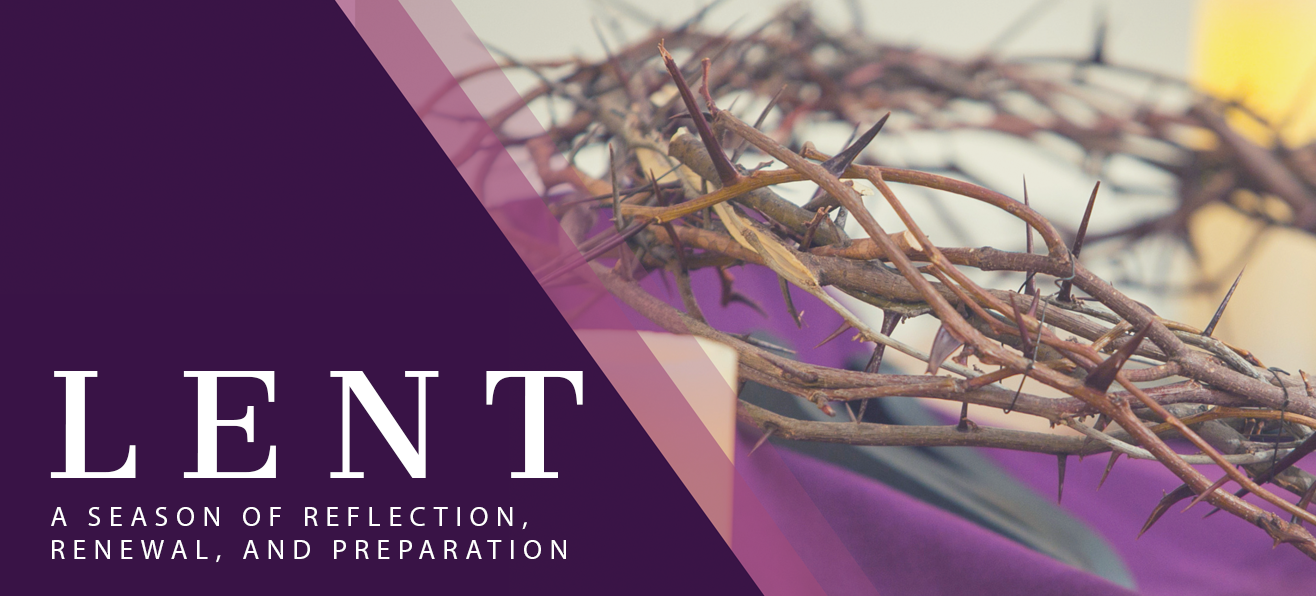Lent is often associated with ‘giving something up’, but it is really a time of spiritual discipline, a time of preparation for the great feast of Easter.
A disciple is one who learns from the master. Immediately after his baptism, Mark says that the Spirit drove Jesus into the wilderness/desert to be tempted by the devil. The desert represents times in our lives of struggle, disorientation, and painful experiences that make us vulnerable to temptation. Lent offers a special opportunity of taking our woundedness to the divine physician for healing.
We enter into the rhythm of lent beginning with Ash Wednesday.
Jesus invites us to greater intimacy through
Prayer – healing for ourselves and the world;
Fasting – depriving self of physical comforts through discipline and growing trust in God.
Almsgiving – sharing our resources generously with the poor.
In the following five weeks, we journey with the gospel themes of repentance, mercy, forgiveness, as we build the Kingdom of God in preparation for Easter.
Passion/Palm Sunday week, the holiest week of the Christian year focuses our attention on the sacred mysteries of:
Holy Thursday: the Blessed Eucharist and the washing of the feet,
Good Friday: the suffering and death of Jesus for the salvation of the world
Easter Sunday: Jesus vanquishes death forever through love.
Lent is a good time to begin or deepen the Lenten practices of prayer, discipline, and almsgiving. Through these ascetic practices, we learn to nurture the silence within and come to experience joy and wellbeing.
Maranatha, Come Lord Jesus.
-Sister Ann Marshall, csj






